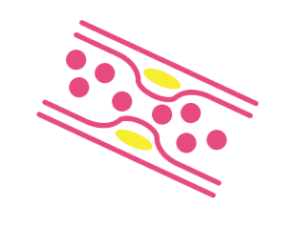LIFE IS BEAUTIFUL
At Curie Genetics, we believe life is beautiful. Our health starts in our genes. Create a
healthier tomorrow, starting today. Diseases like cancer can happen to anyone,
especially if our loved ones have been affected. Knowledge is power.
Genetic and personalised testing can provide the answer.
Be empowered today, hope for the future with strength.

Have you ever wondered about your risk of disease? Do I have a higher chance of cancer as my family member was diagnosed with cancer?
Do I have an increased risk of cardiovascular disease because my family member had a heart attack at an early age?
At Curie Genetics, we help you take charge of your health and gain mastery over the risk of hereditary disease.

WHAT IS HEREDITARY CANCER?
In hereditary cancer, an increased risk of developing certain types of cancers is passed down through families via their genes (change/mutation in the gene).

WHAT IS FAMILIAL HYPERCHOLESTEROLEMIA?
Affected individuals have abnormal levels of low-density lipoprotein (LDL) cholesterol, high-density lipoprotein (HDL) cholesterol, and/or triglycerides. Abnormal lipid levels increase the risk for heart disease and stroke.

WHAT IS GENETIC TESTING?
Genetic testing is done using a blood or saliva sample, which is collected using a special kit that is shipped to an accredited laboratory. Testing looks for mutations that cause an increased risk for cancer.

WHO SHOULD CONSIDER GENETIC TESTING?
You and your relative can consider genetic testing if either or both of you have had:
- Cancer at an early age
- Rare cancer (e.g. ovarian, pancreatic, prostate cancer)
- Family history of cancers
- High-cholesterol or high-lipid or high-triglyceride levels
- Tested positive for a genetic mutation related to hereditary disease risk
GENETIC COUNSELLING IS AN ESSENTIAL PROCESS BEFORE GENETIC TESTING.
OUR CANCER GENETIC COUNSELLOR WILL:
 Review your family medical
Review your family medical
history to assess and explain
your risk for cancer
 Describe the benefits and limitations of
Describe the benefits and limitations of
genetic testing to help you decide if
testing is right for you
 Order the appropriate genetic test
Order the appropriate genetic test
if you choose to proceed

Interpret and explain what
genetic test results mean for
you and your family

Describe the benefits and limitations of
genetic testing to help you decide if
testing is right for you

WHAT ARE THE BENEFITS OF GENETIC TESTING?
KNOWLEDGE IS POWER AND KNOWING YOUR INHERITED CANCER RISK EMPOWERS YOU TO BE
PROACTIVE ABOUT YOURS AND YOUR FAMILY’S HEALTH.
- Increased early surveillance when it is treatable
- Awareness of various options available for prevention and treatment
- Optimise your health through nutrition, exercise, good sleep and mindfulness to help reduce your risk
- Early and appropriate medications can be started to prevent disease

